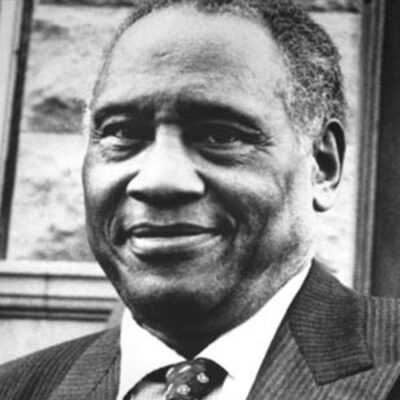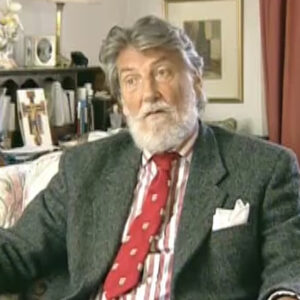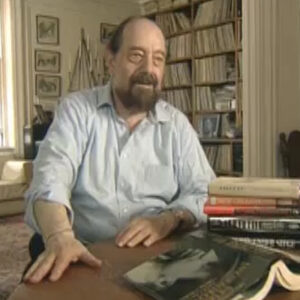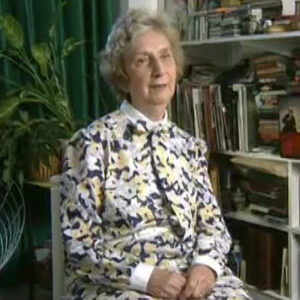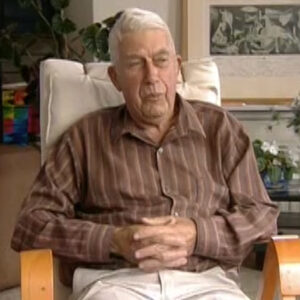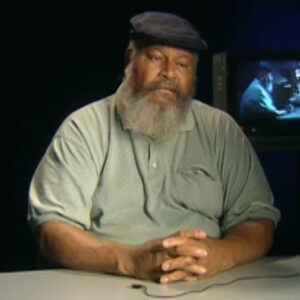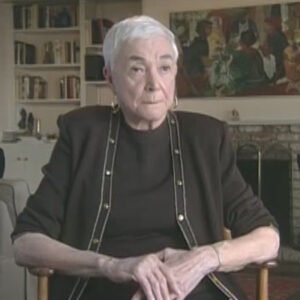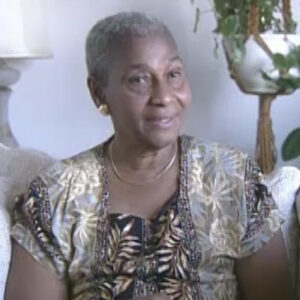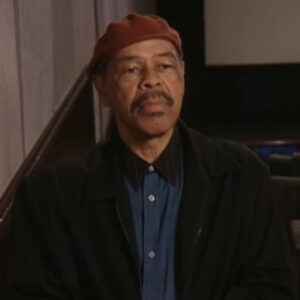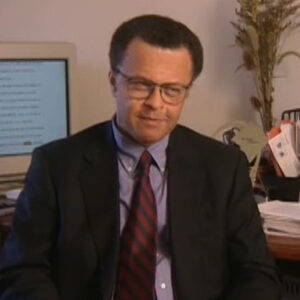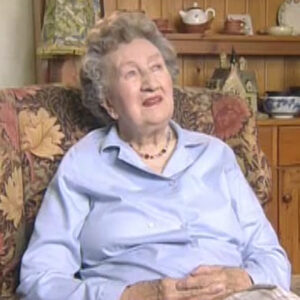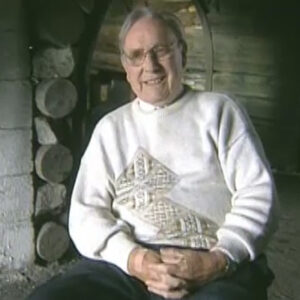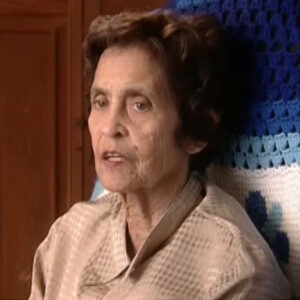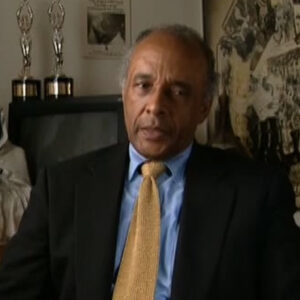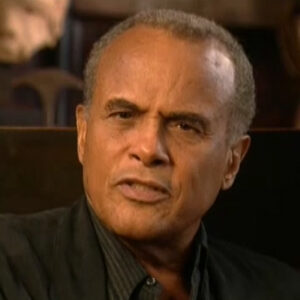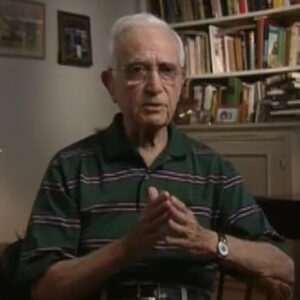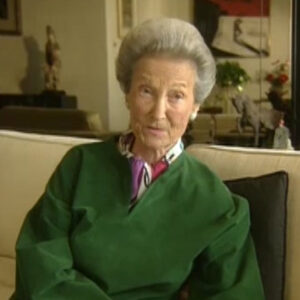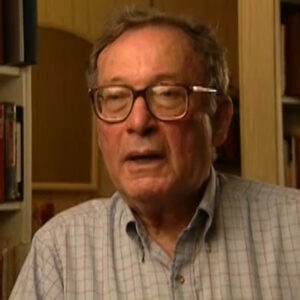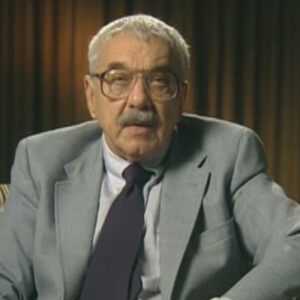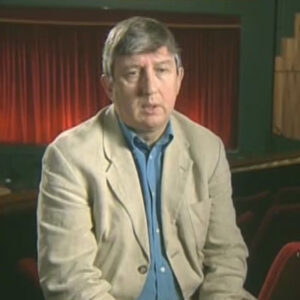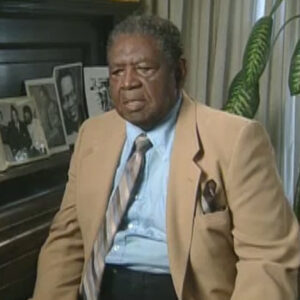Speaker The kind of problems that black people faced in the 1920s. But one thing was that there was a Colaba racism was was legal. Black people could be barred from hotels, from accommodation, from any public places, the YMCA. So that was one problem. There’s also a general problem of the kind of terms that people use. What today is called the N-word was ubiquitous in the press on radio. It was used by politicians and so on. So essentially, racism was was legal. As you know, Britain had a massive empire, colonies in the Caribbean, Africa and so on. And so as a consequence, black people often considered certainly by the you know, the establishment, you could say in Britain as less than equal citizens. And they suffered from racism as a consequence.
Speaker And all wasn’t star.
Speaker Couldn’t he have kind of slipped past some of that, I suppose, to some extent votes and was a star and you would think that to some extent he might be immune from this racism. But in fact, in 1929, he was barred from the Savoy Hotel in London, created quite a storm throughout Britain. The articles in the press, public meetings were held and so on. So even somebody like ropes and wasn’t immune from the kind of racism that existed just as other VIPs, you could say, from the African countries and so on. Also subject to the same Colaba when they tried to get accommodation and so on. And it was because of those kind of problems that Africans, people of African descent in Britain, organise themselves to set up their own clubs, their own hostels and so on, like, for example, the West African Students Union, which votes and later became a patron of the arts.
Speaker I want to ask you, what was what was Robson’s political consciousness when he arrived?
Speaker I’d say when he arrived, his political consciousness was fairly undeveloped. I suppose at the time they would have said that racism was a race man. He was somebody who was conscious of his African origins, was very concerned about the image that Africa had in the world, was concerned to unite with other black people as early as 1925. I think the second occasion he came to Britain, he spoke to the Union of Students of African Descent, which is one of the main African student organisations in Britain. And there he spoke about his kinship with them and they very much saw him as their champion, somebody who was already becoming famous and who they could relate to and so on. But as he spent longer in Britain, obviously his political consciousness developed partly through his links with African students and other Africans, but also through his links with with other people in Britain as well.
Speaker Um, could you talk about the other people as well? I mean, who are the.
Speaker The whole range of political influences on him. I mean, in fact, the students, the African students and other students of African origin that he came into contact with were very, very important politically, because through them, he came into contact with the the anti colonial movement, not just in Africa, but in the Caribbean and also in India. So that was very important. But he also began to come into contact with some of the, I suppose, left wing thinkers and intellectuals of the day, George Bernard Shaw, H.G. Wells and others, and began to have some discussions with them. So he began to hear about, if you like, some of the ideas of socialism and so on. And in that period, particularly in the early and mid thirties, anybody who was anybody really was on the left, you could say, so that he moved into this milieu, if you like, of anti colonialism and imperialism and socialism in Britain and became very much connected with it. But he himself said that it was his contact with with Africans, which actually pointed him towards the Soviet Union, that they had spoken to him about how there was an absence of racism, how nationalities were not discriminated against and persecuted in the Soviet Union. And he said that was what fueled his interest in the Soviet Union and led to his his first journey there.
Speaker Who were some of these just parts of the ruling?
Speaker Were some of the homeless, some of these Africans who were the only people who later came to be prominent or well in the 1930s, he would have met a number of Africans who later became prominent, who were then students here or were visiting in one way or another, people like Jomo Kenyatta, who he would have met probably from the early 1920s here, somebody like Nevada, Zequinha, who later became president of Nigeria, somebody like Kwame Nkrumah, who became the first leader of independent Ghana. So they were here either as visitors or as students during during the 1930s. And he would have come into contact them with them through the West African Student Union and through other African student organizations. He also came into contact with black communists, people like Arnold Ward, who was connected with the Negro Welfare Association, which was an organization linked to the league against imperialism, led by communist and world, was a Barbadian Communist and Robeson, and said that it was through a discussion with him that he became again very interested in what was going on in the Soviet Union. People like George Padmore Padmore was also here by that time, more or less an ex communist, but certainly still a Marxist of sorts of votes and would have been in contact with him, Salau James, whose play ropes and acted in the 1930s. So a whole range of people really in Britain in the 1930s, you could say it was the center of Pan Africanism, I suppose. So there was a great movement here of, you know, Pan African thought Pan African individuals who were around like those people I’ve mentioned and ropes and would have been very much in the center of that or connected with those people.
Speaker There’s a tradition of celebrities attaching themselves to popular causes without, you know, tremendous study of. Do you think that possibly Rowson suffered from that phenomenon or do you think it was?
Speaker A gradual learning, I think Robson’s sort of political transition, as it were, was quite a lengthy process, probably throughout the 1930s, he was becoming more and more interested, if you like, or more and more knowledgeable about the anticolonial struggle, the anti imperialist struggle, what was going on in the Soviet Union, the workers movement in Britain and so on. And it’s not until perhaps after his first visit to the Soviet Union and other circumstances in Britain that he really begins to consciously say that he’s an anti fascist or consciously say that he’s somebody who wants to give his art, if you like, to the cause of working people and so on and so forth. So it’s quite a lengthy process and it’s very much connected with, as I said, the conditions which he found here in the 1930s, those people he was in contact with and so on.
Speaker What do you think about this? What if I mean, here he is. He’s talking to all the anticolonialism of colour and he runs off concerns for white miners. Mm hmm.
Speaker Do you think there was any, um, do you think that the people who were of colour thought he was, like, betraying them or or or giving sort of courting hatreds with the white people here?
Speaker I don’t think there’s any as far as I’m aware, there was any animosity from any Africans or African organisations that he was dividing his time between anticolonial causes or workers causes, whatever it might be. I think that he was he was greatly respected by everybody. And the other thing is that at that time, perhaps there was a greater consciousness that all of these struggles, which today perhaps people see as isolated struggles, were very much connected.
Speaker Obviously, as far as the antifascist struggle was concerned, it might be concerned with the struggle against Nazi Germany or antifascism in Spain or the Italian invasion of Ethiopia, for example. So all of these things were very much brought together during the 1930s. And people here, Africans, people from the Caribbean, black people in general, generally always veered towards the left, as it were, were influenced by the media, which they were in, which, as I said, was sort of left left Marxist influenced Pan Africanism. So I don’t think anyone would have found it very strange. Robeson and was also very much moving in this direction.
Speaker OK. To what extent do you think it is a question that people the few critics of, to what extent do you think that the left used votes and or that he was a part of the left in the way that at least in the early years and we’ll talk about the later years.
Speaker I think, as I’ve said, that at that time during the 1930s, there was a much greater consciousness of the links between various struggles that were going on. And I think that Robeson entered into these struggles, as many other people did, that he wanted to give to contribute the talent and the ability that he had. He says very early on, I think in the late 1920s in a newspaper interview here, the talent which he has must be used for the good of humanity, as it were.
Speaker The artist must contribute in that way so that as he became more politically conscious, it’s really him being more precise about exactly how an artist should use his talent. And, you know, he contributed it where he saw fit, whether it was for Jewish refugees or for the antifascist struggle in Spain or for anticolonialism in India, or to support organizations like the West African Students Union, which have donated money to the League of Colored Peoples, which he donated money to, and so on. So I think it’s something which, you know, developed as he developed and he tried to make the best contribution that he could in the States.
Speaker He had a pretty pretty clear connection with the church.
Speaker Mm hmm. I mean, some because of his father and later, because that was the only place you really have faith within the country.
Speaker Did he have that kind of connection at the attempt to try to make that connection here with the black church groups?
Speaker And they’re the only connection I can think of his connection with black churches. I mean, the first thing we said is there were very many black churches here during this period because the numbers of black people weren’t that great. But in certain areas, there were black churches or clergymen who tried to establish their own organization. And he did, I think, have some connection with Pastor Daniel Toccata in Liverpool, who was a Nigerian clergyman who worked amongst the black community in particular in Liverpool, and had established a mission which you could say he was much concerned with, with black people in Liverpool. And I think Robeson certainly had some connection with him and may have actually performed a benefit concert. I can’t quite remember whether he did perform such a concert or not. But in general, there weren’t black churches in the way that there were in the U.S. in Britain at that time. And I can’t think of any other connections that Robeson had with Christianity here. Apart from Hewlett Johnson. Of course, a well, Dean, you probably heard of Hewlett Johnson was dean of Canterbury Cathedral. Canterbury Cathedral was a well known supporter of Soviet Union socialism and so on. And some would clearly have met him and been connected with him.
Speaker But other than that, I can’t think of any particular Christian connections. What is this about?
Speaker Uh, Rosens connection with his wife when he first came in, because she was basically managing a lot of his career and also it is said that she really got into the greatest living of London and he didn’t really want to come and do your research. And he found any examples of that in that country as well.
Speaker The contrast between it’s difficult to say whether it’s a great contrast between ropes and Essi in terms of their lifestyle and so on. There certainly was some difference in their lifestyle, orientation and so on. But I think I would say it’s got more to do with my growing political consciousness that at one moment he says that the way that the aristocracy, for example, talk to their chauffeurs or servants is the same way in which, you know, the rednecks in the US told to talk to black people and so on. So he sees a comparison between the way the rich treats they treat their servants here and the way in which some white people treat black people in the US. So he very much wants to devote himself more and more to those causes and those people that he thinks are important. And that clearly is very much working people here. And I think that explains to some extent his aversion perhaps to to living in the way in which he may have lived when he first came here. Certainly he wanted to perform for working people. He was very conscious to performing in cinemas and theaters that working people could afford to go and to pay to see him rather than on the West End or in the Royal Albert Hall or wherever it might be. So those were very conscious decisions based on his growing political awareness. And he wants to, you know, to give concerts and contribute in terms of fundraising for those kind of causes.
Speaker Yeah, but he did do the big alcohols and.
Speaker He did do they did do the big holes, but if you if you look at the kind of performance that he gave, particularly by the late 1930s where he’s performing at the Albert Hall, the large holes, it’s very often for political reasons, for political benefits, in aid of, you know, Basque refugees in Spain or for some other cause of that kind, rather than performing for, you know, the aristocracy or the upper classes that he may have performed for when he he first came in the late 1920s. So there’s a definite shift towards, as I say, performing for ordinary people in the kind of venues that they could afford, performing for the masses of the people. And if you talk to people today of a certain age, they will tell you about those performances. However, they say they’ll say that he was a very friendly person, that he’d always come and speak to the audience, that he’d always sign programs, that he’d probably sing more songs than was scheduled and so on, that he he’d give himself to the audience. He wanted to perform for working people. I mean, the other thing about his performances is not just the venues, but the his attitude towards his repertoire as well. That as well as singing African-American spirituals, he began to incorporate folk songs into his his concert performances, particularly British folk songs, English, Scottish, Irish, Welsh songs and so on, as well as other songs from other countries. So again, his his repertoire is developing, if you like, to cater for a new audience, an audience of of working people, of ordinary people.
Speaker I mean, let me play that. What if I said you can’t escape? Look, here’s a guy who’s got a career. You’ve got to make something. You’ve got to be something you’ve got to do. Something different is different from the other countries. Thing is the fact that he’s black. Plus, he wants to get a different audience for maybe this is his technique to bring in a different demographic, as I would say now. Hmm. I mean, somebody can say that and his evidence, at least interpretation to the fact that somebody who was cynical could say that.
Speaker But I think what you’d have to bear in mind is not only the performances which he gave to paying audiences, but the performances he gave for, you know, in terms of benefits, fundraising, that, again, if you look in the press or you speak to older people, there are so many memories of him performing in, you know, the most unlikely areas, as it were. You would not have a star of his calibre of his fame today, whether it was Michael Jackson or whoever performing in Canning Town in East London in order to raise money for the Negro Welfare Association. You cannot imagine any star, so-called star today performing in that way. You cannot imagine in one of today’s great singers saying or great act saying, OK, I’m not going to perform in the West End stage. I consider it decadent. I want to perform for working people. I want roles which are the roles of ordinary people or somebody saying, I’m not going to star in any more Hollywood films. Eddie Murphy, let’s say I want films which give me real roles. I want to, you know, take a stand as a black person to have roles which, you know, befitting a black people. Nobody today would make those kind of decisions. And so I think that you see that ropes and throughout his career was very much a man of, you know, very, very great principals who who fervently believed in what he said he believed. And, you know, as we say, put his money where his mouth was.
Speaker I think if you look at what he said politically, he was actually very cautious and very precise about what he said. He you know, he didn’t, for example, say I’m a communist or something like that. He very clearly said I’m an anti fascist throughout his throughout his life. He was always very precise, I think, about his political beliefs and how he expressed them and what he was doing at any particular time. And I think that’s true of during the 1920s and also during during the 1930s. He was always very precise about what he was doing, why he was doing it. For example, when he was giving performances in aid of the antifascist struggle in Spain. He’s always very clear to link that with the situation of his own people, to see, you know, to put it in the context of what’s going on internationally and so on, and always gave a very precise, very well thought out, you know, political presentation.
Speaker OK, but that was and that’s when he had basically learn about it. What about the early 20s?
Speaker When he first got killed, I think in the early 1920s, the kinds of things he said, I mean, he didn’t make very great political statements publicly, but certainly, for example, when he talks to African students here, he’s very much talking, for example, about African culture, the importance of African culture. This kind of thing, how he sees himself as an African. You know, these are for that time very, very positive comments. But there’s there’s nothing particularly, you know, extreme about the kinds of things he says. And this is something, again, which develops his interest in culture and then also saying the oneness of culture, because he links African culture, African languages with the Chinese language or particular languages that he’s aware of in the Soviet Union with his study of Russian and so on. So it’s all the time, very much a development. And he’s also always very careful to link these particular issues, whether it’s cultural issues or political issues. And as I said, I think that quite early on in his career, he’s also very clear about the role of an artist. And an artist is not just somebody who, you know, gets up and performs but has a sort of duty and obligation to contribute their art to humanity, to try and essentially to make the world a better place.
Speaker Two things, uh.
Speaker From your study, is that the early impulse to talk about the ball? How did that set with Ezzy? I mean, it was essentially managing his career. Who really wanted him to be a star?
Speaker I’m not to be honest. I mean, I haven’t come across anything which she has said.
Speaker You know, we are certainly nothing which publicly contradicted what he said, but I’m not.
Speaker OK, now, how would you place the miners in support of the miners in the country? He seems to put a lot of emphasis on what do you think?
Speaker No, I think the role of British miners, particularly the Scottish miners and the Welsh miners especially, was very important in his political development, but also the role of other working people in Britain and time and time again, ropes and in his and his speeches. And here I stand. He pays tribute to working people in Britain and to the labour movement and says it’s the labour movement in Britain which is responsible for the development of his political consciousness. I think, particularly with, say, the miners in Wales, he, you know, was found something that he had in common with them, perhaps that he said they treated him very much as one of their own. They lived in very difficult conditions, very difficult living conditions and working conditions, something which he could relate to. They were people who were very much involved in struggles throughout their lives against something which he identified with and in various times, for example, again, in the the antifascist struggle in Spain, again, many people from Wales, Welsh miners went to Spain, actually died in Spain, fighting for the anti fascist cause. So it’s something which ropes and very much identified with and and learnt from. And he says all the time that they taught him the oneness of humanity. The fact that there was a possibility of brotherhood, if you like, between all peoples, that the struggles of humanity were won. And he gives him and he gives many examples that I think the most famous example he gives is a worker from Manchester who was not a miner, but a worker from Manchester who says that, you know, that his ancestors were cotton workers in the mills of Lancashire. At the same time that roadsigns ancestors were slaves growing the cotton in the in the south of the U.S. and that there was a link between these to two people and their struggles, the abolitionist struggle in Britain, which the mill workers of Lancashire supported, even at very great hardship to themselves and obviously the struggle against slavery, which African-Americans were involved in. So he very much from these examples, sees the links between all people, the links between their struggles and so on.
Speaker Do you think that he learned that, what with his growing appreciation of the wonders of humanity? Mm hmm. Do you think that that lesson, his commitment to black people as that and as a black person?
Speaker No, quite the opposite. I mean, he all the time says that as he became more conscious of the oneness of humanity, as it were, as he became more committed to the struggle of working people, as it were, at the same time, he became more committed to the struggles of his own people, as it were, black people of African-Americans. And I think the important thing is that he could now see these struggles within a context. He could see that they were related to other struggles that were going on in society and the possibility of them actually being victorious, if you like, of them having allies in the United States and internationally. So that was something which is very positive about his political development, that he didn’t just remain only concerned with black people, but he began to see the struggle of black people, of African-Americans within the struggles that were going on internationally. And that’s a very important political development.
Speaker Let’s jump ahead from the you know, as you know, in the 50s you had this campaign against was what was the reaction here in England?
Speaker I mean, you hear what you stated. What was they did they kind of just look at the old histories? What a shame.
Speaker You know, they know the reaction to the removal of Robeson’s passport in here in Britain was, you know, was very great. I mean, I think from the early 1950s, people began campaigning for the return of his passport. Again, it was the British workers who were at the forefront of this struggle. And I think initially the Scottish miners passed a resolution in the early 50s, fifty, fifty, fifty one. And then the struggle was taken up by other people around the country. And so by the mid 1950s, you had committees in Manchester and in London and a national Paul Robeson campaign, which was led by working people with trade unions, the Communist Party and so on, but also supported by the press, supported by MPs, artists, a whole range of people joined in this national campaign. It was, you know, very, very big campaign here. And as a consequence, you then have the, you know, the transatlantic broadcast, 1957, both from St Pancras Town Hall and from from Wales, where a link was made with ropes and to give him support and so on and so forth. So it was a very big campaign, a very widespread campaign.
Speaker I listened to the tapes and I talked to the people I’m the of. And it was it really. That would be nice. Mm hmm. Okay. Um.
Speaker When he continues to support the Soviet Union. Even as in the Cold War, what what was the reaction here? I mean, was it different from America?
Speaker America was just I think here people’s reaction was very much so.
Speaker They they knew ropes and of old they knew him as a performer, as a as a singer, as an actor, and also as a human being, as somebody who, you know, who gave his talent and his art to entertain people and also in the you know, in the service of various causes and so on. And I don’t think there was too much concern about his, you know, his support for the Soviet Union or his links with communism and so on. Certainly in some sections of the press, there may have been a few eyebrows raised and so on. But I think the main thing was that people felt the you know, the inequity of what had been done to him in the US is almost unprecedented in peacetime, that somebody of that stature could be, you know, barred from leaving the country, could have their careers stopped when it was at its height and so on. And so the campaign here was very much around those issues, not the particular beliefs that Robeson may have had that some may have agreed with or some disagreed with. But the fact that the US government took such a reactionary, you know, position.
Speaker OK, now critique for me. I mean, it’s pretty clear he was a superb human being.
Speaker I mean, yeah, politically now as a story.
Speaker Do you think that he made any mistakes tactically, not morally?
Speaker In other words, do you think maybe if he had not done this right in a certain time, he might have been able, you know, I mean, can you help us out over here, please? Think?
Speaker No, I would say that, as you say, that he is a pretty good guy.
Speaker I think if you look at what he was, that he was essentially a performer, an entertainer, an actor, a singer. Somebody who was prepared to give up everything for his principles, there are not too many of those people around in the 20th century, and it’s for those reasons, as well as for his great talent, that he’s remembered as somebody who, at the height of his career on the London stage, for example, would say, look, I’m prepared to give it all up. It’s decadent. What I want to do is work with the unity theatre and produce a theater for working people. Somebody who said that, you know, I’m not going to sing before segregated audiences in the U.S., somebody has said, I’m going to stand behind my comrades who said I’m going to stand by my principles. I’m not going to give them whatever the American government or anybody else says. You know, this is a tremendous hero. You could say the 20th century. There are not too many people around like that. And I think that it is, you know, what is really what’s really great about him and what will be remembered.
Speaker And, you know, when the 100th anniversary of my birth, I hope, will be forgotten, probably no know.
Speaker And the other thing is, uh, but, you know, uh, some of his some of the people we interviewed said, uh, white Congress and White House, they said, well, you know, he did know some of the things about Russia. Mm hmm. And he did know that there were things going on. That he didn’t really he didn’t have to renounce it, but he didn’t even admit that they were there. Right. So.
Speaker Well, I mean, there were disputes about all of these things. I mean, as you know, there’s this big anyway campaign about so-called anti-Semitism in the Soviet Union, which some people allege first people allege there was anti-Semitism, then they allege that some flashin here that it was known before the light.
Speaker Yeah, well, did, um. Yeah. In terms of evaluating, um.
Speaker Do you think that he approached his actions from a theoretical.
Speaker You know, despite all the talk from.
Speaker Yeah, and I think that if you look at his whole political development, it’s certainly the way that he presents it is very much not from a theoretical point of view, but from his experience. And he talks about his connections with the miners or he talks about what somebody in Manchester said to him about the relationship between workers in Lancashire and slaves and in the US, or he talks about how he understood the issue of classes and the class struggle in Britain from how an aristocrat talked to one of his servants and so on. So although he he clearly read, you know, Marxism and so on, the way that he understands or presents his political development is very much from these experiences and his links with people and what they told him. You know, for example, he says he discovered Africa here, here in London, but he’s not talking about reading a book or coming to the School of Oriental and African Studies, although he did that, but that he met Africans here of all kinds, both students and Africans who were the same or who worked in some capacity or another. And he learnt from them, from talking to them, from their experiences, from the things that they told him about the anticolonial struggle in their own countries or here in Britain. So his political development seems to be very much connected with people, with their experiences and with his experiences amongst people. And I think that’s a very important aspect of his political development.
Speaker Good. And one of the areas in which he delves into was languages. And he did it, in fact, that this institution. Could you talk about the impulse to do that and the processes by which he just all the students enrolled as a student at the School of Oriental and African Studies in 1934?
Speaker I think you actually enrolled to study linguistics. But while studying linguistics, I think he may have also studied Swahili and possibly possibly some other Bantu languages. I think as far as the records show, he was actually here for about two terms. So it’s not as if he he studied at great length. But this was and is the Center for the Study of African Languages in Britain. But clearly, he also learned something about African languages from those Africans that he met in the West African Students Union from the film set of Sounds of the River and so on. And obviously he had a great aptitude for languages anyway. So his formal training and understanding of linguistics was was obviously important, but also of equal importance was the connections which he had with with Africans and with others from whom he learned languages.
Speaker Um. You know, I that and, oh, OK.
Speaker OK, there’s a quote here is it is my first it was something I said it is it’s my first concern to dispel the regrettable and abysmal ignorance of my own heritage in itself.
Speaker So.
Speaker Kind of the people have talked about how much is awareness. Let’s talk about his humility.
Speaker I mean, he didn’t seem to be the.
Speaker We want to say, I know this, it didn’t seem to be uptight about admitting what he didn’t know.
Speaker No, I don’t think it’s difficult to think of an example of. Somebody is humility. I think that’s that’s yeah, well, the fact that he went to school at.
Speaker It could have hired to do.
Speaker Yeah, I mean, he probably came to us again, some of those people he was in contact with, West African students and others, I think even Kenyatta himself was a tutor here, um, for some time. So he might have just thought this was the best place to go to get some grounding in particularly in linguistics and maybe the basic theoretical understanding of theoretical grounding in in linguistics and languages to back up what it was that he, you know, he could learn, learn by himself or learn with others who spoke those languages. Um.
Speaker Do you think that we were talking earlier about the penalty that he paid for his principles?
Speaker Do you think that.
Speaker How much, how much, how do you think he was of the potential for the impression that came that ultimately did come now?
Speaker I think that’s difficult to say, because I think anyone who’s involved in politics, of whatever level has some understanding that if you want to change society completely, then there are those forces in society that want to stop you and they may take action to stop you at some time. It may be that as individuals, people never quite expect that it will happen to them.
Speaker But I think certainly from his from growing up in the in the United States and knowing the nature of the U.S., I’m sure he would have been aware of the possible consequences of his actions. I mean, after all, black people who were active in politics, particularly who were who were communists, were liable to all kinds of persecution and violence, even murder and so on. So I think he would have been aware of some of the the possible consequences.
Speaker Maybe he would have thought or may have considered that somebody in his stature could possibly get away with with some of these things. But he took his stand. Nevertheless, whether or not he believed that he could get away with it, I don’t know. I’m not sure if anybody knows. But certainly he took the stand the less he was prepared to pay that price for those things he believed in.
Speaker Do you think he actually wanted the change, that he wanted to change conditions? Or was he did he want to be a cheerleader or spokesman for those?
Speaker He definitely wanted to change the world. I mean, there’s no doubt about that from all that he says and all that he did. And if you if you pay that price, you’re somebody who’s committed to that particular cause. And he clearly was very much committed to that cause, both the cause of African-Americans of anticolonialism and the cause of democracy and working people generally, and spoke about those things time and time again. So, no, he was he knew what he was doing. He was fully conscious and fully committed. He was he stood by his principles and was prepared to, you know, to pay the price for so doing OK.
Speaker How did you come to know about Rose and to what extent was it you know, was it like something you studied or did you just was a part of your life? And I played, you know, axis of evil. No way.
Speaker OK, well, I grew up in Britain. I was educated at, uh, well, local schools and School of Oriental and African Studies here. I think I probably first came across robes and maybe I was in my early twenties, maybe as an undergraduate, I can’t quite remember. But certainly when I first became politically aware, politically politically conscious, he was a name and a figure that the very soul emerged was somebody that, uh, you know, people talked about, you know, a great, uh, not only as a somebody who.
Speaker This is Monday night on.
Speaker OK, your personal awareness of.
Speaker Where they come from, you know, I think probably as a as a young man, as soon as you become in any way connected with progressive or democratic or revolutionary politics, Robeson is a name which you immediately become familiar with. You know, somebody who stood by their principles, somebody who championed the cause of working people, of humanity in general, somebody who obviously, as he himself said, was a believer in scientific socialism, was a supporter of the cause of African-American people, black people in general, of anticolonialism and so on. And he devoted his life to those things. So somebody who you very much would see as a hero, I suppose, as I say, a man of principle and obviously also as a great performer, as a great artist who gave his his life and his talent for those causes and those principles which he thought were important in London in general, people who are not political as he a known element in London. Oh, definitely. Well, if you speak to anybody over a certain age, I would guess anybody over 45 or certainly anybody over 50, everybody has got something to say about Paul Robeson that they saw him or they know somebody who knew him, or I remember speaking to somebody at work who said that when he was growing up, there was only one picture in his house and that was a picture of Paul Robeson. And he said he could never understand why because his parents were politically conservative and so on. But the only picture they had in the house was of Paul Robeson. But everybody would have some story to tell that they saw Paul Robeson perform in some street or a small club or he gave an impromptu performance here or there, or he just finished at Stratford. And then he gave a small concert for people who were around or somebody who may have seen Robeson as a child and has never forgotten it and so on. I mean, people you never hear anybody say anything bad about Paul Robeson. He’s that kind of figure. And he’s clearly somebody who, you know, was very much loved by people in Britain. I mean, he was voted top radio performer, I think, in 1939. But above all that, somebody who was very much loved and admired and is still remembered with great affection by by people here, certainly, as I say, people who are of a certain age.
Speaker Uh, last question.
Speaker In your research as a historian, did you find any evidence that this kind of ability, that part of his breakdowns were caused by poisoning the CIA, FBI?
Speaker And I think I mean, those are things which people in the U.S. would have been more able to establish by going for the FBI papers if you can ever establish such things. But I mean, clearly that the pressure that was put on him by the state authorities in the US, the FBI and others clearly, you know, put enormous pressure on him and contributed, I’m sure, to, you know, the illness and that he suffered in later life.
Speaker I said earlier a wonderful thing about himself and a lot of people, that the combination of the former singer of black communist. That was so good that.
Speaker Something he said before. Yes.
Speaker Yeah, what’s up when you asked me the first time about why. OK.
Speaker But it was unbelievable how overwhelming the combination. He said it now before we move all the time. Oh, I see.
Speaker In other words, yeah, he said basically to find someone like his former star who was like, OK, yeah, yeah, yeah, yeah, yeah.
Speaker I think that’s I think that’s right. Because, I mean, if you look at him from his early career, it’s somebody who championed Africanness.
Speaker It was proud of being black, you know, but he’s also somebody who who championed the working class, the cause of humanity was a communist and so on. So what you come out with is, you know, that’s a great hero of the 20th century. Somebody who’s black is a great performer who’s loved by everybody, who’s a great actor, who’s a communist, who champions, you know, political causes and so on. I mean, truly a great individual even today, still loved by people all around the world and so on. I mean, really a great figure, I suppose you could say a titan of the 20th century.
Speaker That’s the right. Oh, you know, in the States, he wasn’t officially a cop.
Speaker He’s not a I mean, he’s a you know, he says I’m a believer in scientific socialism. He doesn’t say I’m a communist. But I mean, that’s if you say all those things.
Speaker But the thing is, and in the in the in the UN America, you are hearing that was the key thing he said because he stated those things, but he didn’t say I’m coming.
Speaker Yeah. I mean, he refused to accept the right of the court to ask him about those things or the right of them to ask anybody else about those beliefs. That’s right. And he went as far as we know, he wasn’t a member of the CPA in the U.S., though I understand the CPA in the U.S. now making it clear he was and I don’t think he was a member of the CPA here, although he was very, very closely connected with them. But.
Speaker I mean, when I say he’s a communist, I’m not trying to say he was a member of the Communist Party, but that he had the views and beliefs of I mean, what what else do you.
Speaker I’m a communist.
Speaker What’s the problem, if you believe those things, then that’s, you know. Yeah, I mean, if you don’t want to use that term and that’s why I say I know you still feel me.
Speaker No, but I mean, if, you know, if you if you have those beliefs, you know, he said I’m you know, I want to make clear my position. I’m a believer in scientific socialism and so on.
Speaker Find anything that you wanted to say over or anything you wanted to say that you haven’t.
Speaker Was most uncomfortable.
Speaker So is most of the best idea?
Speaker Well, one thing I was going to say at the beginning was just the importance of Britain to Paul Robeson. I mean, a number of ways you can you could look at it. But he came here in 1922 was the first place that he realized that he could be a professional singer. He says when he performed in the Blackpool Opera House, it was the first place he performed The Old Man Reverenced on stage in 1928. It was the first place he performed Othello on stage and so on. So it was clearly a very important part of his career, the development of his career in Britain. And then clearly, it was also very important politically, as he says time and time again, that he really became political or politically conscious, if you like, as a consequence of his time in Britain, his links with the labour movement, the working class in Britain. He says it was in London, in Britain, where he first discovered Africa and so on. So his formative period, if you like, in terms of his career and his political development, are very much based here, here in Britain. I think that’s that’s something which is quite important to remember.

